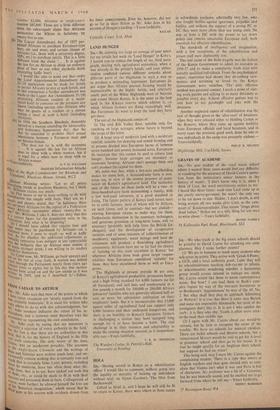i. 1 ft. "ve Mr. Ashe says that most of the
points to which
taken exception are 'simply from the
best available historians.' It is usual for writers who ,Op3 mr! others to do so with due acknowledgment, but debt Ashe nowhere indicates the extent of his in- srateedlless. and a reviewer must therefore take his .rnents as representing his own conclusions.
Ashe ends by saying that my statement is
virtt14111Y a rej of ry in field,' bu fieldthe fact isection that there eve a re noauthority authorities the in this and , that is, for the history of England in the fih sixth centuries. The only writer of the time, Cild
In tIgs. was an incoherent preacher. The accounts Anglo
ech -Saxon Chronicle and the writings of tont' and Nennius were written much later, and un- tIltictilnately contain nothing that is certainly true and t thos that is certainly false. Later writers, including AA: he mentions, have too often done what Mr. of HI' does, that is to say, have picked out such bits theoe.de, etc., as could be made to fit in with their ries and presented them as facts. Collingwood, of course of hrSe• went further; he allowed himself the free use filiec:s 'historical imagination,' which meant that he gaps in his sources with incidents drawn from
his inner consciousness. Even he, however, did not go so far in sheer fiction as Mr. Ashe does in his account of Hengist's landing.—Yours faithfully, CeIntilla Court, Usk, Mon
RAGLAN


































 Previous page
Previous page